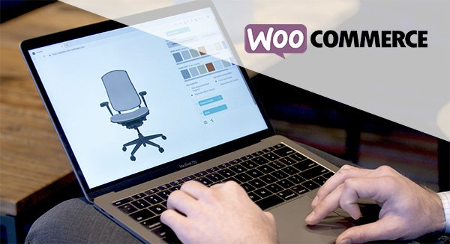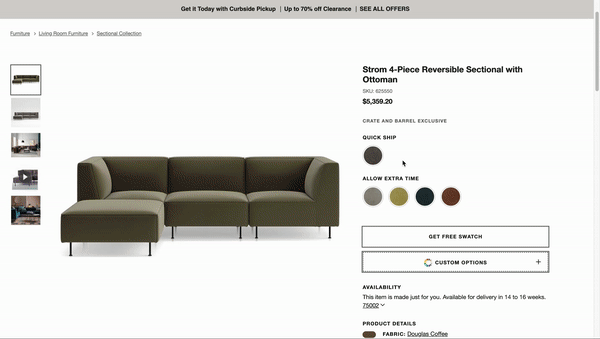3 Ways Online 3D Product Configurators Green the Product Lifecycle
eCommerce is badly in need of a green makeover.
Online retailers have long been searching for ways to decrease waste and reduce carbon emissions in their operations, and COVID-19 has only made the situation worse. From the burden of product returns to demand miscalculations and manufacturing surpluses, eCommerce churns out far too much waste, and retailers need to do something about it.
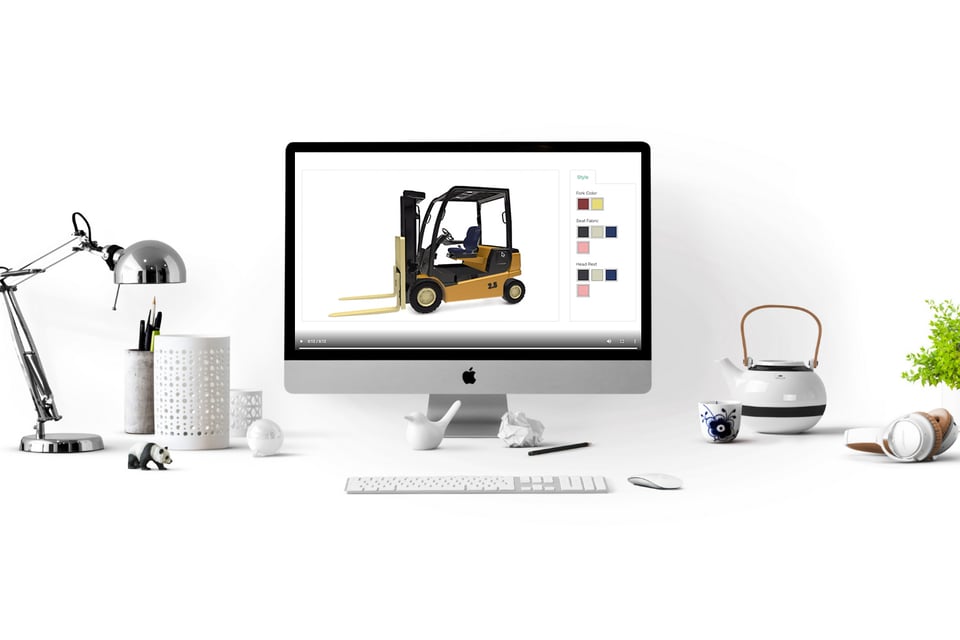
Enter online 3D product configuration, a solution that can help retailers better gauge and deliver what customers want and execute with leaner resources in order to minimize waste. Here’s how online product configuration can make the entire product lifecycle more sustainable, from the warehouse all the way to the customer’s doorstep.
1: Online Product Configurators Help Retailers Improve Demand Forecasting to Prevent Overproduction
Demand forecasting is the process of using historical data to predict future buyer behavior. It’s a critical part of business decision making and supply chain management, but as it is an educated guess at best, it’s hard to get right.
Imprecise demand forecasting isn’t just troubling from a financial perspective, though. Overproduction is incredibly wasteful: manufacturing surpluses burn emission-heavy manufacturing and transportation energy only for unsold products to wind up in a landfill.
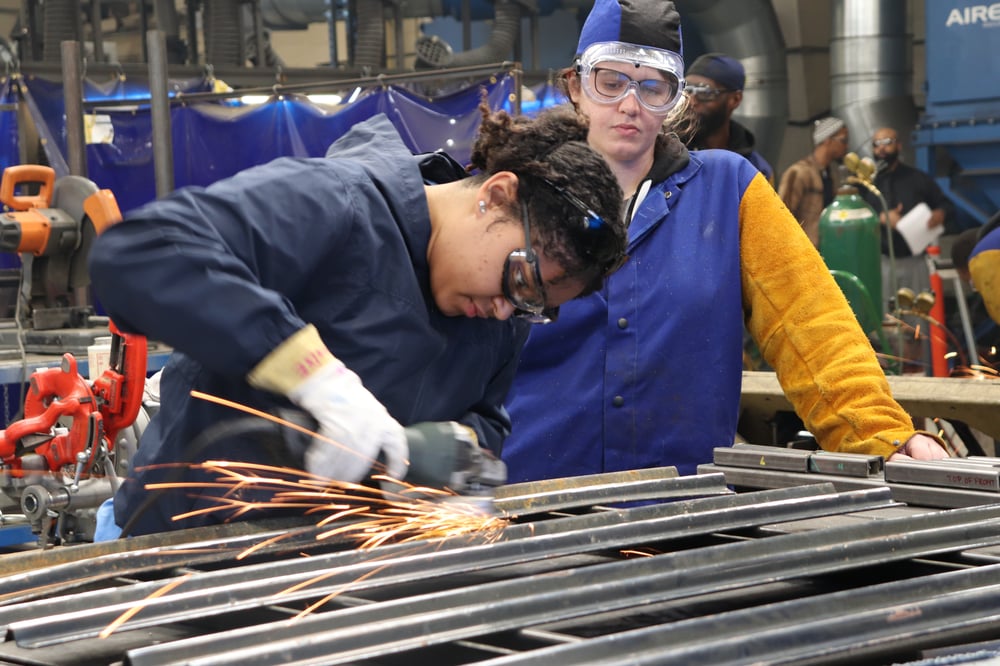
If the goal is to only produce what you can sell, retailers need accurate portraits of customer demand. The traditional demand forecasting method relies on sales patterns and macro-level market trends, but in this unprecedented era of COVID-19, last year’s data isn’t much help. Take home furniture and men’s suits sales for example: no one could have predicted last year that the former would skyrocket and the latter would plummet.
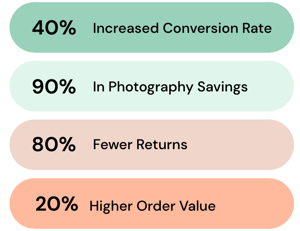
But retailers who use product configurators on their websites have an untapped strategy to improve demand forecasting. Customer activity on configurators and product pages provide a real-time view of
demand ahead of sales cycles: you can track pre-sales metrics like configurator clicks and add-to-carts to more accurately inform inventory planning.
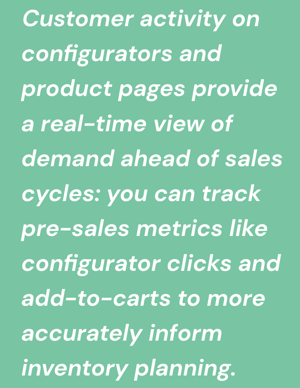
2: Online 3D Product Configuration Eliminates the Need for Energy-Intensive Photo Shoots
Retailers can save even more resources and energy (and time and money) by taking product photography virtual.
Photographing an entire inventory demands a lot of energy: you have to package, ship, and transport thousands of products from a warehouse to a photography studio on the other side of the country and back. That can generate a lot of shipping waste and carbon emissions along the way. Plus, lighting equipment and product transport machinery in a studio sometimes require industrial-strength electricity to operate.
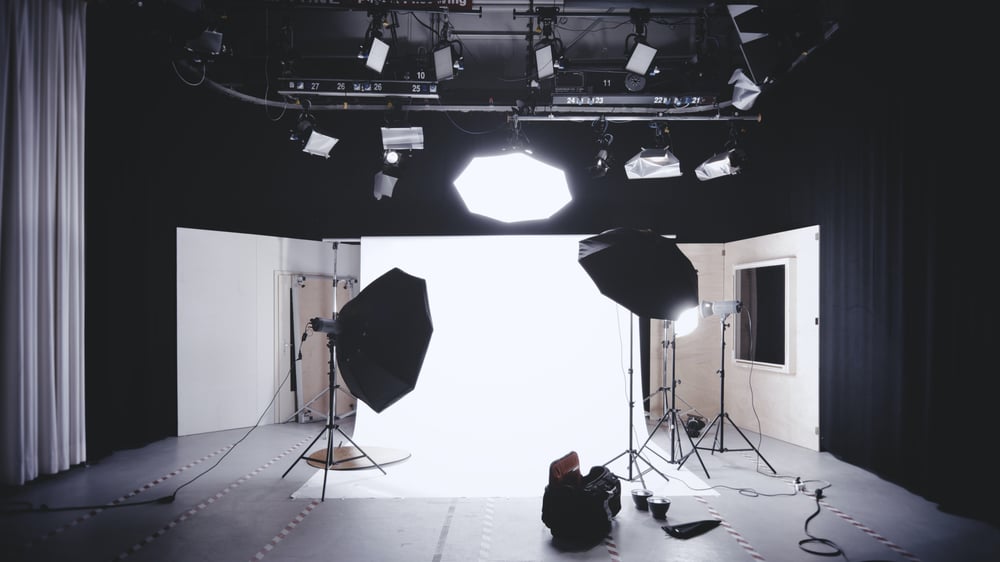
Instead, retailers can use software to get their product images and bypass the energy-draining studio photography process. There are two great online product configuration methods to get those visuals without traditional photography:
- Virtual photography allows you to create thousands of photorealistic 2D images from a design file.
- 3D configurators use 3D assets of products to create infinite configurations of products in a 360-degree view. Customers can view different colors, inputs, and materials in real time.
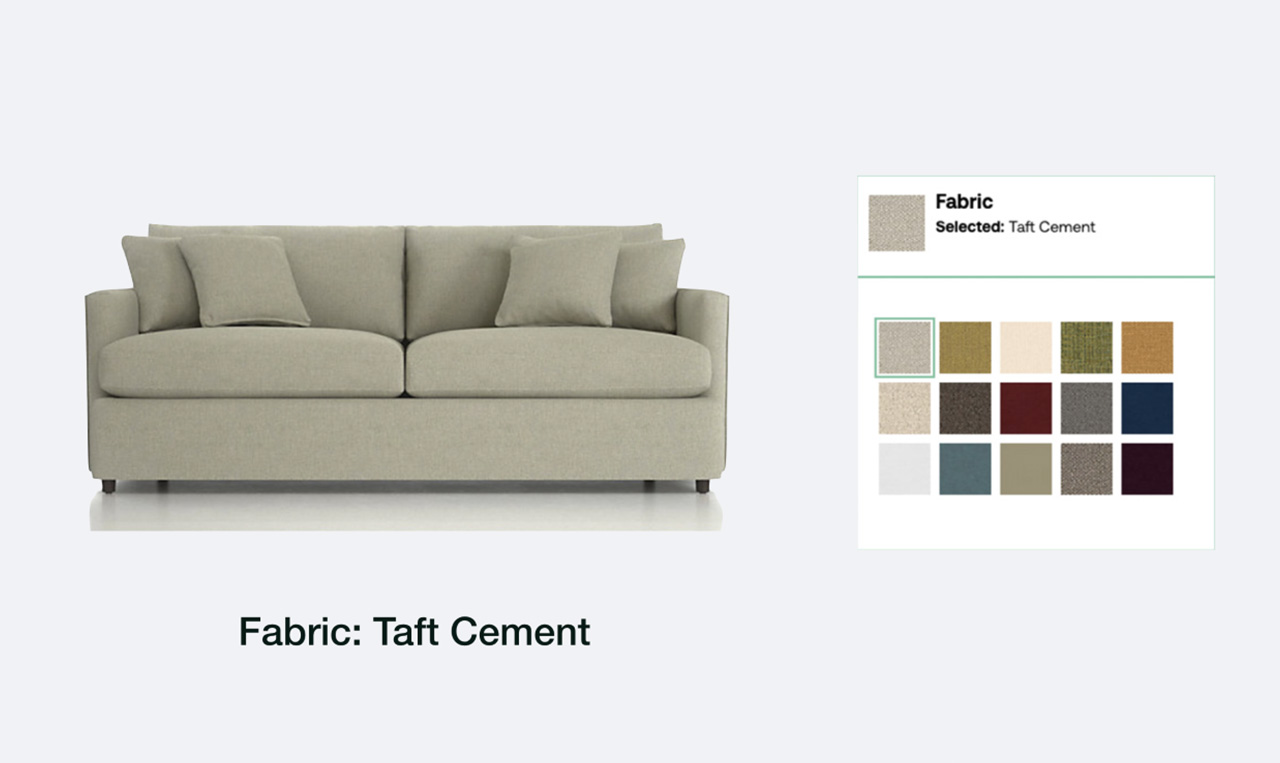
With digital photography, retailers get the same quality as studio photography with far less equipment. In fact, merchandisers and marketing teams only need something they already have: a computer.
3: Online 3D Product Configurators Boost Shopper Confidence to Decrease Returns
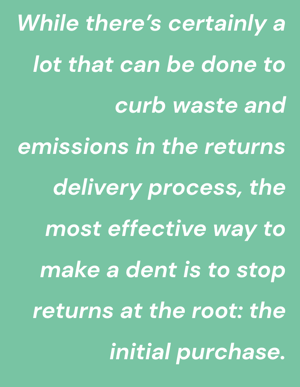
Product returns are notoriously harmful to the environment. Annually, returns are responsible for about five billion pounds of product waste and 15 million tons of CO2 emissions. They’re also a financial scourge – there were $350 billion worth of goods returned in 2018. In other words, returns aren’t good for anyone: consumer, retailer, or planet.
While there’s certainly a lot that can be done to curb waste and emissions in the returns delivery process, the most effective way to make a dent is to stop returns at the root: the initial purchase. Shoppers need to be confident that what they see online will look exactly like what they see in the box.
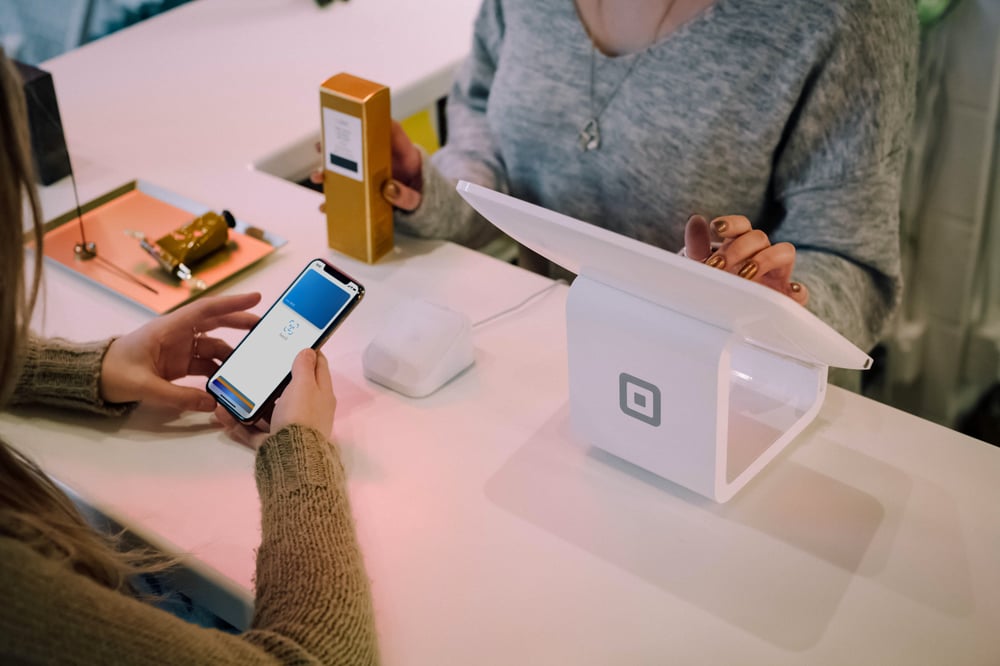
At Threekit, we believe that excellent online product visuals is the key to that customer confidence and satisfaction. That’s why we’ve made a commitment to help retailers reduce product returns through first-rate online visuals that show customers exactly what they’ll be getting.
Furniture and home goods retailers in particular can take that confidence boost a step further by letting customers use augmented reality. For these products, size matters – if an item doesn’t fit in a customer’s space, they’ll return it. AR allows customers to demo a product that’s true to its dimensions in their own space so that they can guarantee it’ll be a fit.
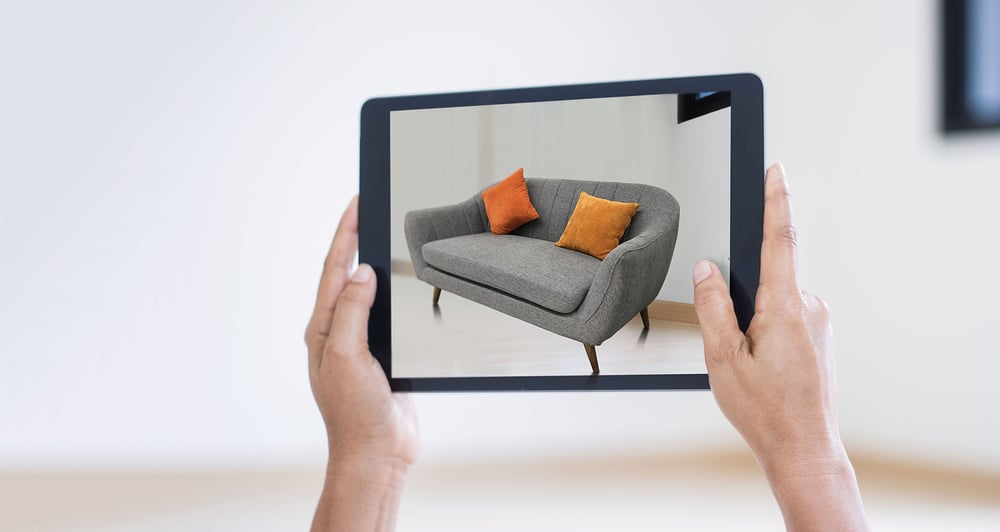
An Online 3D Product Configurator Makes a Great Addition to an eCommerce Sustainability Plan
The issue of eCommerce sustainability is hefty, and no single solution can convert a company from wasteful to waste-free.
Are online product configurators the answer to make all of eCommerce carbon-neutral tomorrow? No. But are they a tool retailers can adopt now to take steps toward reducing their company’s carbon footprint and waste output? Absolutely.
Online product configurators help ensure everyone buys or uses only what they need with fewer resources in between. The planet will thank them.
Sign up for a demo to learn more about how Threekit can support your business’s sustainability initiatives.

